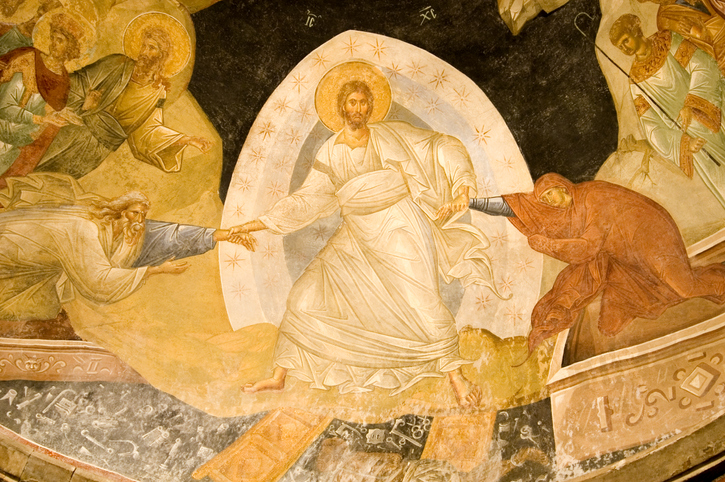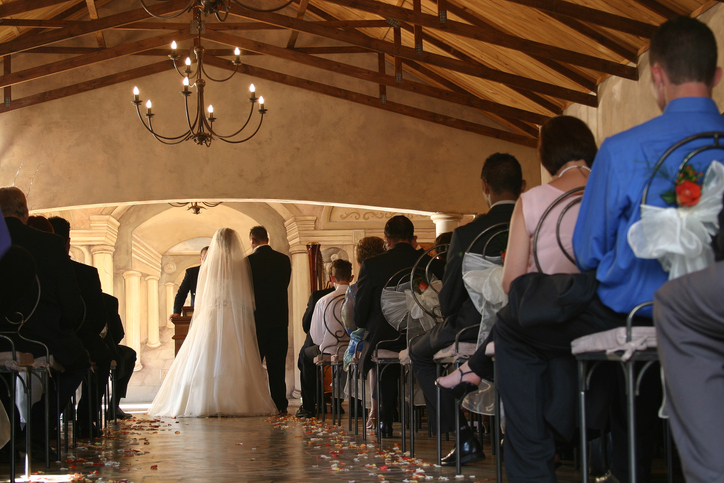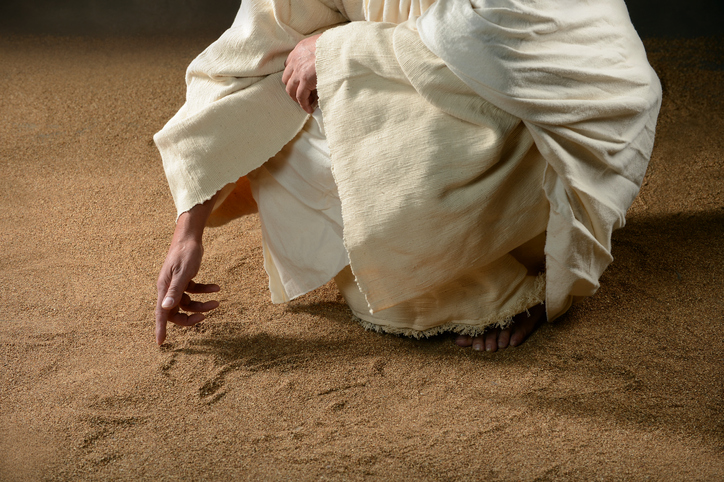Warm ash falls from the tops of buildings as the brightest light imaginable makes our pupils dilate to the size of a pen head. There is a heat that can only be described as that of a blazing furnace built for forging swords of old. This sounds like the opening paragraph of a book about the end of the world, but really it’s just me imagining what the end of the world might be like.
There is a lot of talk today about the end of the world. As our culture seems to deteriorate more and more we can’t help but wonder where all of this is going and how fast. The optimist in me immediately reminds myself that there have been many times that cultures have thought the world was ending, but it didn’t. Whether the end of the world is near or not, a question that we just don’t know the answer to, I think our response to the world today should be one of optimism.
It is easy to look around and feel like the sky is falling around us, but the Gospel today reminds us that, “The harvest is abundant but the laborers are few.”
Today in the Church we could look at the situation and get depressed about the slew of people leaving the Church but what is that going to get us? Instead, the Gospel reminded me today that I am one of the disciples. I am called to go out during this time where the harvest can be so abundant, but I need to go and till the soil. I think that is a call for all of us.
I am reminded of that iconic scene from the Lord of the Rings:
“Frodo: I can’t do this, Sam.
Sam: I know.
It’s all wrong
By rights, we shouldn’t even be here.
But we are.
It’s like in the great stories Mr. Frodo.
The ones that really mattered.
Full of darkness and danger they were,
and sometimes you didn’t want to know the end.
Because how could the end be happy.
How could the world go back to the way it was when so much bad happened.
But in the end, it’s only a passing thing, this shadow.
Even darkness must pass.
A new day will come.
And when the sun shines it will shine out the clearer.
Those were the stories that stayed with you.
That meant something.
Even if you were too small to understand why.
But I think, Mr. Frodo, I do understand.
I know now.
Folk in those stories had lots of chances of turning back only they didn’t.
Because they were holding on to something.
Frodo: What are we holding on to, Sam?
Sam: That there’s some good in this world, Mr. Frodo. And it’s worth fighting for.”
I don’t know about you but that scene gets me amped up. I get excited that every person I meet is another chance to share the love of Christ. I get excited that there are people out there who really want to know the truth and I can present it to them. I get pumped about learning new things about my neighbors and entering into their experience.
The point is that we are all called to be disciples and to till the soil. When we think about the daunting task ahead of us do we fall into despair and immediately think about the end of the world or do you think more like Sam? I pray that I can be a Sam. From all of us here at Diocesan, God Bless!

Tommy Shultz is a Solutions Evangelist for Diocesan. In that role, he is committed to coaching parishes and dioceses on authentic and effective Catholic communication. Tommy has a heart and a flair for inspiring people to live their faith every day. He has worked in various youth ministry, adult ministry, and diocesan roles. He has been a featured speaker at retreats and events across the country. His mission and drive have been especially inspired by St. John Paul II’s teachings. Tommy is blessed to be able to learn from the numerous parishes he visits and pass that experience on in his presentations. Contact him at tshultz@diocesan.com.












